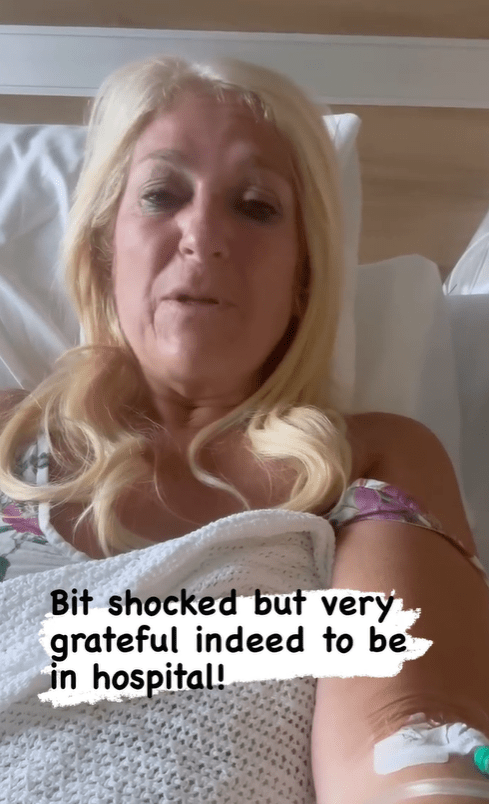VANESSA Feltz has been rushed to hospital for emergency surgery after being doubled over in agony.
The broadcaster, 62, shocked her fan when she shared a message from her hospital bed this morning.
She wrote: “Gosh! Hello from hospital. 2pm I was fine. Had just made lunch and was playing with AJ 5 and Cecily nearly two. 3pm I was doubled over in agony.
“Scan showed big kidney stone. OMG! Astoundingly painful. Rushed into theatre. Very grateful thanks to my daughters nurses porters anaesthetist and wonderful surgeon. Thank you so much.”
Her celeb friends were quick to send their support with Love Island’s Chloe Burrows writing: “Omg!!! Sending you loads of love xxxxx.”
Lisa Snowdon said: “Oh bloody hell V! Super ouch and thank goodness you’re ok. Big love honey,”
READ MORE ON VANESSA FELTZ
Kate Thornton posted: “Ouch! Thank goodness you’re in the right place. Feel better and sending my love x.”
Holly Willoughby’s sister Kelly shared: “Oh Vanessa!!!!! You poor thing. Sending you love and healing darling.”
Kidney stones are masses made of salt and minerals, and can be anywhere between a grain of salt and a golf ball in size.
There are several different types, calcium stones, struvite stones, uric acid stones and cystine stones.
The stones have potential to cause severe pain, and while most pass on their own through the ureter – the tube between the kidney and the bladder – some require to be medically removed with surgery.
What are kidney stones?
Kidney stones are a common and usually very painful condition.
They usually affect people between the ages of 30 to 60, the NHS says.
It adds: “They can be extremely painful, and can lead to kidney infections or the kidney not working properly if left untreated.”
How can you tell if you have a kidney stone?
- You have a pain in the side of the tummy
- You have severe pain that comes and goes
- You feel sick or are vomiting
Call NHS 111 or a GP if you have severe pain, a high temperature, an episode of shivering or shaking or blood in the urine.
Kidney stones form from chemicals in the urine.
Some are as small as a grain of sand and are passed in the urine without you noticing. Others can be as large as a pebble.
Causes of kidney stones are:
- Drinking too little water
- Too much or too little exercise
- Obesity
- Weight loss surgery
- Eating food with too much salt or sugar
Many kidney stones can be treated at home by drinking lots of water, using pain relief and waiting for the stones to pass.
Large kidney stones need to be removed by surgery, in which various methods are used to break the kidney stone into smaller pieces so that they can pass in the urine.
Some surgeries are done under anaesthetic while others are not.

